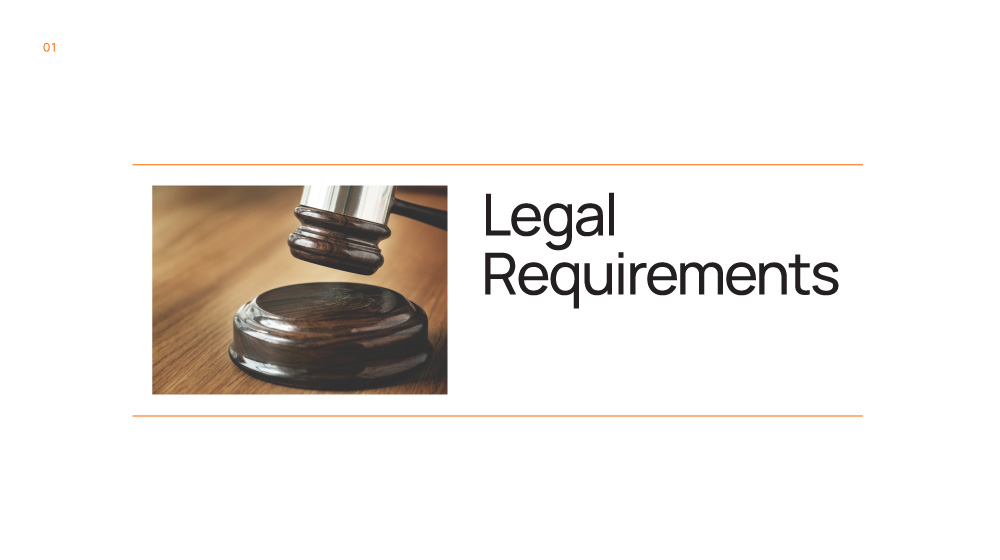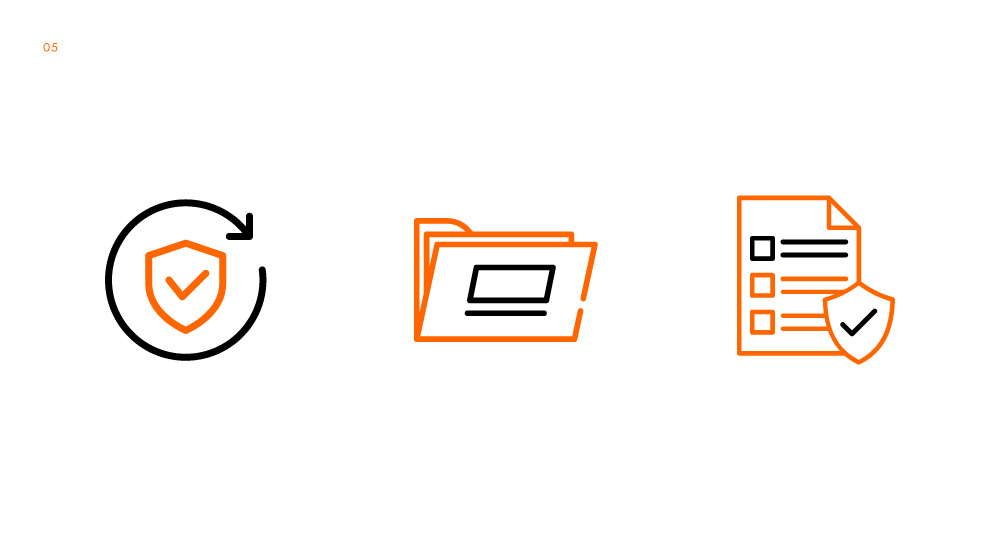Dubai’s business environment in 2025 is more dynamic than ever, attracting entrepreneurs from across the globe. Whether you're interested in a Mainland, Free Zone, or Offshore setup, the opportunities to launch your business in Dubai are vast, especially given the government’s commitment to fostering innovation and investment.
In this comprehensive guide, we will provide you with a detailed roadmap on how to start a business in Dubai. From selecting the right business activity to understanding Dubai’s legal and regulatory landscape, we will cover all the critical steps. You will also gain insights into optimizing your tax structure, selecting the most suitable licensing options, and making informed decisions that will contribute to your long-term business success.
Table of Contents
Understanding the Business Landscape to Start a Business in Dubai
Mainland vs. Free Zones vs. Offshore
Understanding how to start a business in Dubai requires knowing the differences between these three primary business jurisdictions. Each offers unique advantages and challenges, and selecting the wrong one could limit your growth potential. Knowing how to start a business in Dubai the right way can set you on the path to success.
Mainland Business
Advantages: Mainland company formation in Dubai gives you full access to the UAE market, no limitations on business activities, and the potential for significant growth, especially for domestic market-focused businesses.
Challenges: Corporate tax obligations (9% on profits over AED 375,000), higher operational costs (office rent, employee salaries), and the need for a local sponsor in Dubai or service agent in certain sectors.
Free Zone Business
Advantages: Dubai freezone company formation gives you 100% foreign ownership, no corporate tax (except in some cases), and simplified setup processes. Some free zones offer sector-specific benefits (e.g., technology, media, logistics).
Challenges: Cannot trade directly in the UAE domestic market without a distributor or agent, limited office space, and some zones cater only to specific industries.
Offshore Business
Advantages: Offshore company formation in Dubai can make you eligible for zero taxes, full profit repatriation, minimal reporting, and low operational costs due to no physical presence.
Challenges: Cannot engage directly with the UAE domestic market, limited growth opportunities within the UAE, and less flexibility compared to Mainland or Free Zone businesses.
Read our full guide on challenges in setting up a business in Dubai to avoid costly surprises
Choosing Your Business Activity and Structure
Types of Business Licenses in Dubai
When learning how to start a business in Dubai, selecting the right business license is crucial. Here are the primary types of licenses you’ll encounter:
- Commercial License: Required for companies involved in the trading of goods or merchandise. If you’re wondering how to start a business in Dubai that focuses on the exchange of goods, this is likely the license you’ll need.
- Professional License: Suitable for businesses offering professional services, like consulting, architecture, law firms, and similar services. If your focus is on providing expertise and not selling physical products, this is the license for you when figuring out how to start a business in Dubai. For example, if you’re looking to start a digital marketing agency in Dubai, this is the license you’d need—check out our detailed blog for a full guide on getting started.
- Industrial License: Required for manufacturing or industrial companies, which involve producing goods from raw materials. When considering how to start a business in Dubai in the industrial sector, an industrial license is essential.
- Freelance Permit: A freelance license is ideal for independent professionals or consultants in fields like media, technology, education, and marketing.
Understanding these categories is a critical part of how to start a business in Dubai and will guide you in the right direction.
Legal Requirements and Documentation

Business Registration Process (Step-by-Step)
- Choose a business activity and business structure: This is the most critical first step when figuring out how to start a business in Dubai, as it will determine the legal structure of your business, you need and the associated requirements.
- Register your trade name with the Department of Economic Development (DED): Your trade name must comply with UAE’s naming conventions, such as avoiding offensive words or references to religion.
- Obtain initial approvals from relevant authorities: Certain business sectors may require specific permits, such as healthcare, food, or education. Knowing how to start a business in Dubai in these industries means understanding the necessary regulatory requirements.
- Draft and sign a Memorandum of Association (MOA): especially for LLCs, outlining the rights and responsibilities of the business owners.
- Rent office space and register through Ejari:This ensures that the business has a physical address and complies with the UAE’s commercial tenancy regulations.
- Apply for a business license and complete the registration process: Ensure that you’re choosing from the correct license based on your structure and business model.
Additional Permits & Approvals
As you figure out how to start a business in Dubai, it’s important to know that some business types require extra approvals beyond the basic registration.
- Food-related businesses will need approval from Dubai Municipality.
- Healthcare services must be approved by the Ministry of Health.
- Tech businesses and those involved in telecommunications require approval from the Telecommunications Regulatory Authority.
Choosing a Business Location: Mainland vs. Free Zone

Where you set up your company plays a huge role in your success. Anyone researching how to start a business in Dubai will quickly come across two main options: Mainland or Free Zone. Both offer benefits, but the right fit depends on what you want to achieve.
Cost & Setup Considerations
- Mainland companies usually have higher setup costs due to office space, visas, and the need for a local sponsor. However, they have the flexibility to do business across the entire UAE.
- Free Zones offer cost-effective startup solutions, including ready-made offices and pre-structured services. However, businesses must plan for restricted local market access unless they appoint a local distributor.
Best Free Zones for Business in 2025
- DMCC (Dubai Multi Commodities Centre): This zone is known for supporting commodity trading, and it has evolved into a hub for a wide variety of industries, including technology, trading, and finance. Many new founders exploring how to start a business in Dubai choose DMCC for its reputation and global credibility.
- Dubai Internet City (DIC): Ideal for digital businesses, including IT startups, media companies, and tech entrepreneurs.
- JAFZA (Jebel Ali Free Zone): Known for its strategic location, JAFZA offers excellent infrastructure for logistics, manufacturing, and industrial businesses. If you’re still weighing your options, this list of free zones in Dubai breaks down the top choices for 2025.
Registering Your Trade Name and Getting Initial Approvals
Choosing Your Trade Name
A lot of people focus on paperwork when figuring out how to start a business in Dubai, but naming your company is just as critical. The process of naming your business in the UAE is far more than just picking something catchy. The trade name will become the cornerstone of your brand identity and will play a critical role in your business’s reputation. Therefore, it is important to choose wisely, as there are strict guidelines regarding business names in the UAE.
For anyone navigating how to start a business in Dubai, this is one of the first checkpoints. You’ll need a name that fits your business activity and follows government guidelines.
Trade Name Guidelines
- Cultural Sensitivity: Your trade name must adhere to local cultural and religious norms. The UAE is a country with strong Islamic values, so any name that may be seen as offensive, blasphemous, or in poor taste (such as using inappropriate words or images) will be rejected.
- Appropriateness: The name should match your business type, ensuring it accurately reflects your industry.
- Avoiding Generic Terms: The name cannot be too generic or vague. For example, using words like “Business Solutions” or “General Trading” might be too broad. Specificity is essential to make the trade name stand out and be distinctive within your industry.
- No Use of Religious or Political Terms: Names cannot include religious or political references unless the business is directly related to these areas.
Checking Name Availability
Once you’ve come up with a trade name, you must ensure that it’s available for registration. The Department of Economic Development (DED), which oversees the registration of Mainland businesses in Dubai, offers an online portal where you can search for the availability of your proposed trade name.
- Uniqueness: When learning how to start a business in Dubai, it’s important to ensure that your business name is distinct. The DED requires that trade names not closely resemble existing businesses within the same industry. This helps avoid confusion in the market and maintains professional integrity.
- No Duplication: A key aspect of how to start a business in Dubai correctly is avoiding names that are too similar to existing ones. For instance, if a company already operates under the name “Royal Feast,” a new restaurant cannot be named “The Royal Feast.” Such similarities could result in your application being rejected.
3.Trademark Check: If you have a unique name that you plan to expand globally, it’s also wise to check whether the name is already trademarked by another company, particularly in markets where you might want to do business outside of the UAE. This can help prevent trademark conflicts down the road.
Trade Name Reservation Process
A critical part of how to start a business in Dubai is securing your trade name early in the setup process. Once you’ve identified a suitable and available name, you’ll need to reserve it through the appropriate authority either the Department of Economic Development (DED) for Mainland businesses or the relevant Free Zone Authority.
- Submit Your Name for Approval: Through the DED or Free Zone Authority, you’ll need to submit a name reservation application. This is typically done online and takes a few business days to process. If everything checks out, your name will be reserved.
- Pay a Fee: There is usually a small reservation fee that you will need to pay when submitting the application. The amount can vary depending on whether you are applying for a Mainland or Free Zone business, as well as the type of license.
- Confirmation: Once approved, you’ll be issued a name reservation certificate. This document is essential when moving forward with your company setup and signals that you’re well on your way to completing the legal requirements of how to start a business in Dubai.
Getting Initial Approvals
After your trade name is reserved, the next step in how to start a business in Dubai is securing initial approvals from the relevant authorities. This process varies depending on whether you are setting up in a Mainland or Free Zone.
Initial Approval Process for Mainland Businesses
- DED Approval: For those navigating how to start a business in Dubai Mainland, securing approval from the Department of Economic Development (DED) is a key milestone. Once your trade name is accepted, the DED will issue an initial approval that permits you to move forward with licensing and documentation.
- Activity Approvals: Certain business activities require additional approvals before you can proceed with your business registration. For example, if you’re planning to open a healthcare-related business, you may need approval from the Dubai Health Authority (DHA). Similarly, businesses in sectors like food, education, or real estate may require additional regulatory approval from respective authorities.
- Shareholder Approval: If your business structure includes multiple stakeholders, you’ll need to submit identification documents and gain initial approval from each shareholder. This is particularly relevant when foreign investors are involved—a key detail to consider when mapping out how to start a business in Dubai with international partners.
Initial Approval Process for Free Zone Businesses
- Free Zone Authority Approval: In Free Zones, businesses typically undergo a simpler approval process, which is often faster than Mainland setups. However, you’ll still need to submit documentation and meet all regulatory requirements specific to that Free Zone.
- Business Activity Confirmation: Just like Mainland businesses, Free Zone businesses also need to get approval for their business activities. Free Zones will allow specific business activities, so make sure your proposed activities align with what the Free Zone permits.
- Ownership Structure and Shareholder Approval: If your business involves foreign shareholders, the Free Zone will need to approve the ownership structure to ensure it adheres to Free Zone regulations. In some cases, foreign ownership may be restricted, but many Free Zones allow 100% foreign ownership.
Additional Approvals for Certain Sectors
Some businesses, depending on the industry, will require additional licenses or permits. For example, businesses in industries like education, healthcare, law, and food services often need to get approvals from regulatory bodies such as:
- Dubai Health Authority (DHA) for healthcare businesses.
- Dubai Municipality for construction or real estate projects.
- UAE Central Bank for financial institutions.
- Dubai Tourism for travel agencies or hospitality businesses.
Applying for the Business License

After selecting the jurisdiction (Mainland, Free Zone, or Offshore) and finalizing your trade name, the next major step is applying for your business license.
Steps for Applying for a Business License
- Submit the Application: You’ll submit the application to the appropriate authority (DED for Mainland or the specific Free Zone Authority). The application will include the business name, business activity, shareholder details, and other required documents.
- Prepare and Submit Documents: Anyone researching how to start a business in Dubai should be aware of the documentation required during this stage. Most authorities will ask for the following:
- Copy of passport for all shareholders
- Proof of residence for all shareholders
- Trade name reservation certificate
- A signed Memorandum of Association (MOA) for LLCs
- Initial approval from the relevant authority (if required).
- Pay the License Fees: A common question is also about how much it costs to open a business in Dubai. The license fees vary based on jurisdiction, license type, and business activity. Mainland licenses typically range from AED 15,000 to AED 50,000, while Free Zone and Offshore licenses may cost less, depending on the package selected.
- Receive Your Business License: Once your application is approved and all fees are paid, you’ll be issued your official business license. This is a major milestone in the overall process of how to start a business in Dubai, as it legally authorizes you to begin operations in the UAE.
Types of Business Licenses in Dubai
- Commercial License: For companies engaged in trade or sales of goods.
- Professional License: For businesses that provide professional services like consulting, education, legal advice, or marketing. For anyone setting up an HR consultancy in Dubai, the professional license is what you’ll need—check out our blog on getting an HR consultancy license in Dubai for all the details.
- Industrial License: For businesses involved in the manufacturing or production of goods.
- Freelance License: Ideal for individuals who are self-employed and providing specific professional services without a full-fledged company setup.
It’s crucial to choose the right license because it will influence everything from your tax obligations to your ability to hire employees, secure visas, and grow your business within the UAE.
Opening a Corporate Bank Account
After securing your business license, the next important step in how to start a business in Dubai is opening a corporate bank account. The UAE banking system is robust and internationally connected, offering access to a wide range of financial products and services. Corporate banking in the UAE is particularly known for its efficiency, though there are several steps to navigate in order to secure your business's financial setup.
Choosing the Right Bank
- Emirates NBD, ADCB, and Dubai Islamic Bank are popular choices for corporate accounts. These banks are well-established and have extensive services tailored to businesses.
- International banks such as HSBC and Standard Chartered are also options if you need global reach and specialized services for foreign clients.
- Each bank has its own requirements, but common documents include your business license, shareholder details, proof of residence, and sometimes a business plan.
Each bank has its own set of requirements, so you’ll want to ensure you have the necessary documents in hand when researching how to start a business in Dubai and opening a business bank account.
Required Documentation for Opening an Account
- Company trade license: A copy of your business license that confirms your legal right to operate.
- Shareholder details: Information on all shareholders and partners in the business.
- Passport copies: For all stakeholders involved in the business.
- Proof of residence: Typically utility bills or rental agreements to prove where you are based.
- Business plan: Some banks, particularly those handling international clients or large transactions, may require a business plan to assess your company’s financial goals.
Want help making sure your documents meet UAE banking standards? Read our full guide on how to open a business bank account in UAE the right way.
Visa Requirements for Employees and Shareholders

When exploring how to start a business in Dubai, understanding the visa requirements for both employees and shareholders is essential. The UAE offers a straightforward visa process that helps business owners hire employees and secure residency. As part of your setup in Dubai, ensuring compliance with these visa requirements is a critical step in how to start a business in Dubai.
Types of Visas
- Investor Visa: If you own a Mainland, Free Zone, or Offshore business, you can apply for an investor visa. This grants residency and allows you to legally operate your business within the UAE.
- Employee Visas: If you intend to hire employees, you must sponsor them through the Ministry of Human Resources and Emiratisation (MOHRE). Each employee will need an employment visa, which typically lasts for 2 to 3 years and can be renewed.
- Family Sponsorship: As a business owner, you can sponsor family members (spouse, children, and parents) for residency in the UAE, which is one of the attractive benefits for foreign investors.
- Freelance Visa: If you are operating as a freelancer or self-employed individual, a freelance visa can be applied for through certain free zones like Dubai Silicon Oasis or Dubai Media City. This visa is ideal for professionals in media, technology, and education.
Visa Process
- The process involves applying for an entry permit, undergoing a medical fitness test, and obtaining a labor card and residency permit. The process can take anywhere from 1 to 4 weeks.
- Some Free Zones streamline the process by offering Freezone visa packages that include work permits, residency permits, and sponsor arrangements, making it easier for entrepreneurs to set up their business and employ staff quickly.
Renting an Office Space
Finding office space is an essential part of your business setup in Dubai, especially if you opt for a Mainland license. Although Free Zones provide flexible office space solutions, Mainland businesses will need to rent a physical office to comply with Dubai’s commercial leasing regulations.
Types of Office Spaces
- Virtual Offices: For smaller businesses, virtual office packages offer a registered address while you work remotely. It’s a cost-effective solution, especially in Free Zones, when a physical workspace isn’t necessary.
- Co-Working Spaces: As part of how to start a business in Dubai, many entrepreneurs are opting for co-working spaces due to their flexibility. These spaces vary in size, cost, and can scale with your business as it grows.
- Private Offices: For privacy and a dedicated space, private offices are ideal. Mainland businesses must register their tenancy contract through Ejari, a key step in how to start a business in Dubai.
Understanding Taxation and Corporate Structure
The UAE offers favorable tax conditions for businesses, but with the introduction of corporate tax in 2023, it’s important to understand how these taxes apply to your business and how you can structure your company for tax optimization.
Corporate Taxation
- A 9% corporate tax is applicable to businesses with profits over AED 375,000. This tax applies to both mainland and free zone companies. It’s important to know how to start a business in Dubai in a way that considers your tax liabilities. Registering for corporate tax in UAE is a vital process to stay compliant with UAE laws.
- Certain Free Zones still enjoy tax exemptions depending on the type of business activity and the duration of their setup.
- There is no VAT on most services and products in the UAE, but certain goods like tobacco and sugary drinks are taxed at 5% VAT.
Tax Planning
- For those learning how to start a business in Dubai in a Free Zone, the tax exemptions offered for up to 50 years can be a major incentive, making Free Zones attractive for certain types of businesses where they can lower their taxes legally.
- For Mainland businesses, it’s essential to have a well-structured tax strategy that takes advantage of exemptions and efficient accounting practices. This is a key consideration when deciding how to start a business in Dubai in the most tax-efficient way possible.
Complying with Regulatory Requirements
UAE businesses are required to comply with various regulatory authorities. Depending on your business activity, these regulations may differ, so knowing how to start a business in Dubai the right way means ensuring you’re fully compliant with these regulatory bodies.
Key Regulatory Authorities
- DED (Department of Economic Development): Overseeing business activities in the Mainland.
- RERA (Real Estate Regulatory Authority): If you are engaged in real estate.
- VARA (Virtual Asset Regulatory Authority): For businesses involved in cryptocurrency and blockchain.
- UAE Central Bank: Regulates businesses dealing with financial services and banking.
Compliance Checklist
- Licensing and registration with the appropriate authorities.
- Annual audits for companies above a certain size or turnover.
- VAT registration if applicable.
- Health and safety regulations for employees working in certain sectors.
Maintaining Your Business: Renewals, Record-Keeping, and Compliance

Once your business is up and running, staying compliant with ongoing regulatory requirements is essential for long-term success. Regular business license renewals, keeping detailed financial records, and ensuring compliance with labor laws are all part of your responsibilities.
Business License Renewal
Most business licenses in Dubai need to be renewed annually. The renewal process involves updating your trade license, paying renewal fees, and ensuring that all documents are in order.
How GCG Structuring Supports a Compliant and Strategic Business Setup
With over five years of experience in the UAE market, GCG Structuring specializes in helping entrepreneurs and investors establish businesses in Dubai with precision and full regulatory compliance.
Starting a business in 2025 involves more than simply filing paperwork — it requires a clear understanding of local laws, licensing frameworks, and how each decision impacts your long-term operational and financial goals. Our team ensures that every aspect of your business setup in Dubai aligns with the most current legal standards while also supporting your broader vision for growth.
From ensuring your setup aligns with the latest regulatory standards to guiding you through key decisions that impact how your business operates, we simplify the process while keeping you fully compliant. Whether you’re looking to operate locally or expand your presence globally, we work behind the scenes to make sure your foundation is strong, sustainable, and legally sound.
Our approach is designed to give you peace of mind, allowing you to focus on building your vision while we handle the technicalities with precision and care. When you’re thinking about how to start a business in Dubai, GCG Structuring is here to make the process smooth and compliant.
If you’re ready to discuss how to set up your business in Dubai, book a free consultation with one of our experts with the link below the video.
FAQ
1. 0 How to start a business in Dubai without relocating to the UAE?
Yes, it’s possible to establish and operate a business in Dubai without physically residing in the UAE. Many Free Zones allow for remote company formation and even offer virtual office packages. However, certain activities, such as opening a local corporate bank account or managing on-ground operations, may require travel at specific stages or the appointment of a local representative. Working with a qualified structuring partner can make this process seamless.
2. 0 How long does it typically take to set up a company in Dubai in 2025?
The timeline depends on the type of business, licensing requirements, and jurisdiction. In Free Zones with streamlined processes, setup can be completed in as little as 5 to 10 working days, assuming all documents are in order. Mainland setups may take 2 to 4 weeks due to additional government approvals and documentation.
3. 0 What happens if I don’t renew my trade license on time?
Failure to renew your license can result in fines, blacklisting, and business suspension. The penalties accumulate daily, and your company may lose the ability to sponsor visas or enter contracts. Some Free Zones offer grace periods, but it’s critical to track renewal dates and act early to stay compliant.





